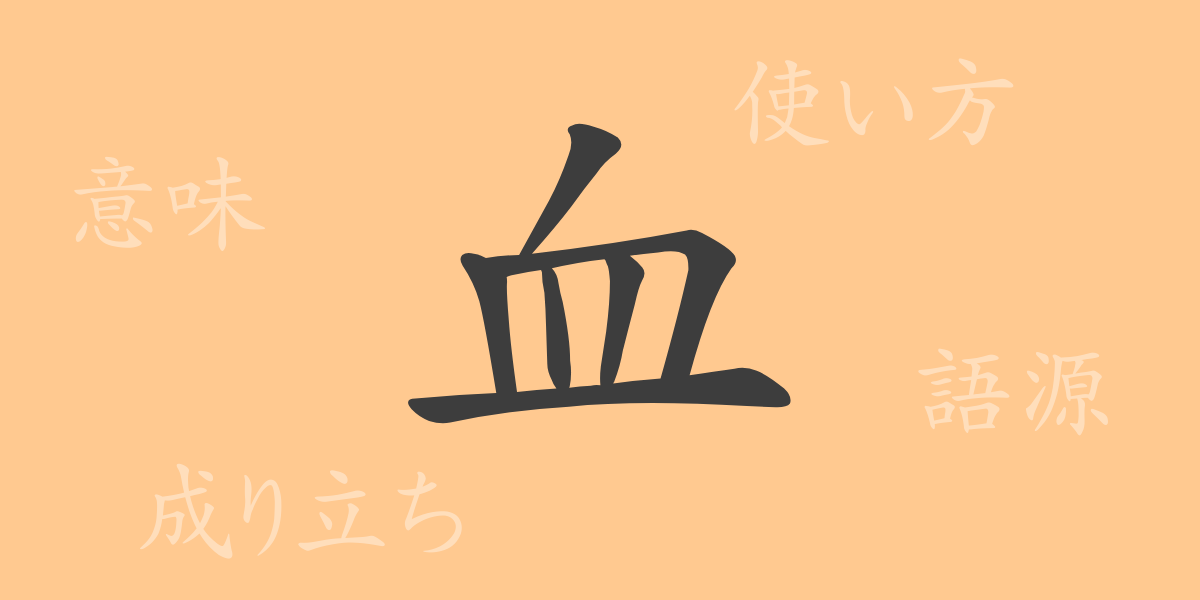The Japanese character for “blood” (血, ち, chi) is deeply rooted in both biology and culture. This single kanji carries a wealth of symbolism and emotion beyond its biological meaning. As a common kanji in everyday life, “血” (ち, chi) appears in various contexts. This article explores the rich world of “血” (ち, chi), from its origin and meaning to its usage, pronunciation, and related idioms.
The Origin of 血
The origin of the kanji “血” (ち, chi) can be traced back to ancient China. As a pictograph, it depicted drops of blood on a piece of flesh. Over time, the character evolved into its current form. “血” (ち, chi) has long symbolized the essence of life and, simultaneously, served as an important element denoting lineage and blood relations.
Meaning and Usage of 血
“血” (ち, chi) primarily refers to the liquid that flows within the bodies of humans and animals, essential for sustaining life by transporting nutrients and oxygen and removing waste products. Metaphorically, it is used to refer to familial connections or blood relations. Additionally, phrases like “血気盛ん” (けっきさかん, kekkisakan) and “血のにじむような努力” (ちのにじむようなどりょく, chi no nijimu you na doryoku) express fervor and relentless effort.
Pronunciation, Stroke Count, and Radical of 血
Understanding the readings and structure of the kanji “血” (ち, chi) is crucial for Japanese learners.
- Readings: The on’yomi (音読み) reading is “ケツ” (けつ, ketsu), and the kun’yomi (訓読み) reading is “ち” (chi).
- Stroke count: 血 (ち, chi) has a total of 6 strokes.
- Radical: The radical of 血 (ち, chi) is 血部 (ちぶ, chibu), meaning “blood.”
Idioms, Proverbs, and Phrases Using 血
Japanese has numerous idioms, proverbs, and phrases that use “血” (ち, chi). For example, “血は水よりも濃い” (ちはみずよりもこい, chi wa mizu yori mo koi) means that family bonds are stronger than any other relationships. The phrase “血を分ける” (ちをわける, chi wo wakeru) refers to direct blood relations, such as parent and child or siblings. “一血卍塊” (いっけつばんかい, ikketu bankai) signifies a relationship born from the same blood, indicating a very close bond.
Conclusion About 血
The kanji “血” (ち, chi) represents not only biological aspects but also deep connections in culture, emotions, and human relationships. From its readings and usage to the idioms it forms part of, “血” (ち, chi) carries extensive meanings and continues to be a significant element in the Japanese language. Through understanding this kanji, one can gain deeper insight into the richness and cultural depth of the Japanese language.

























